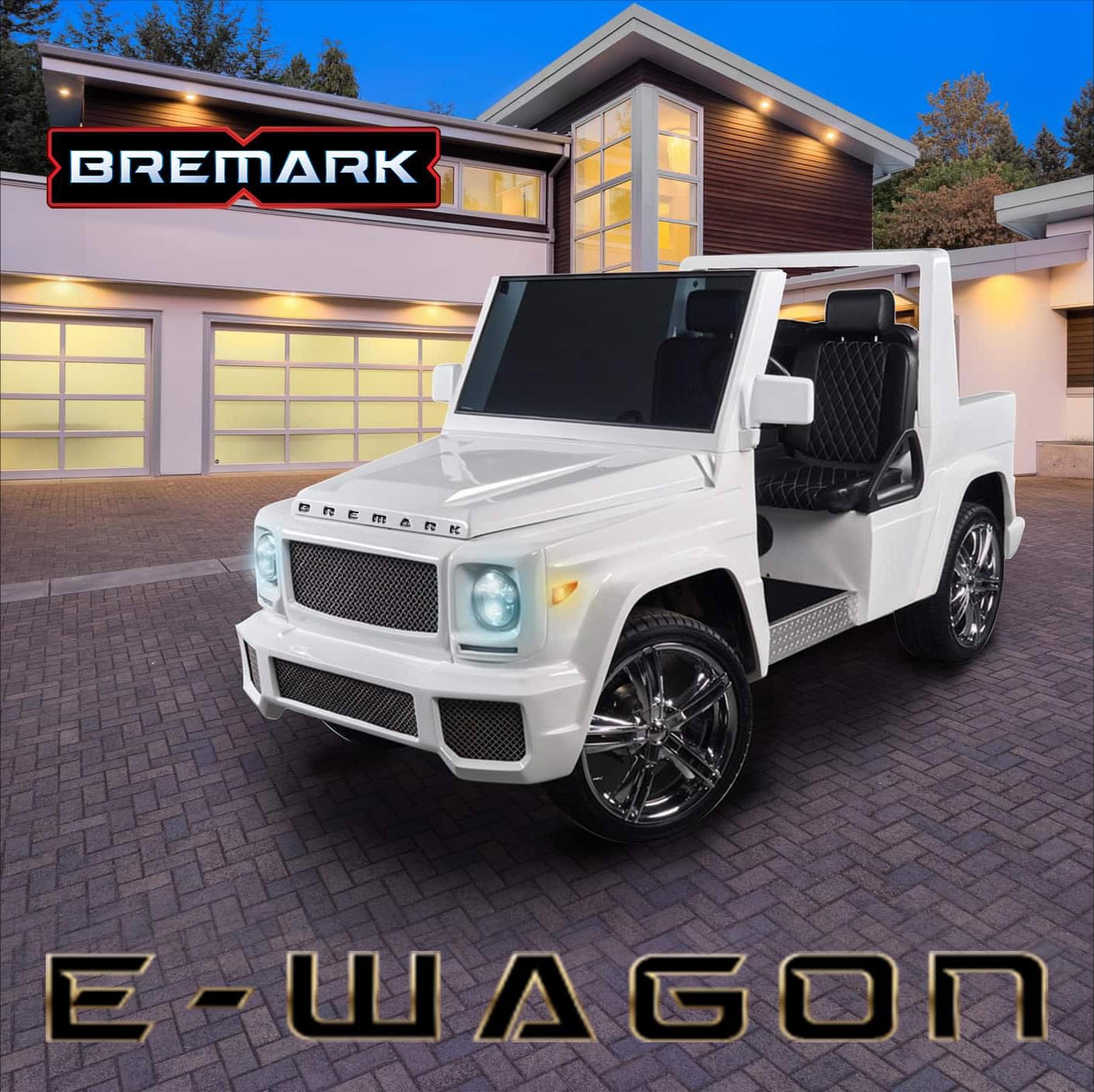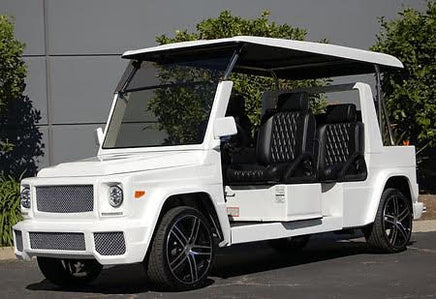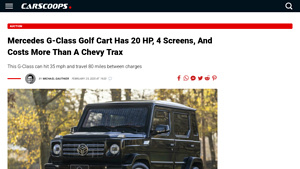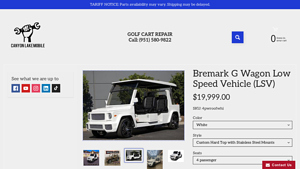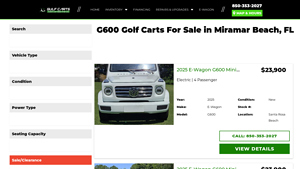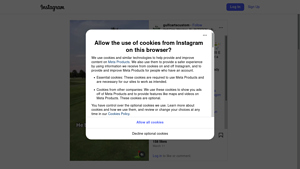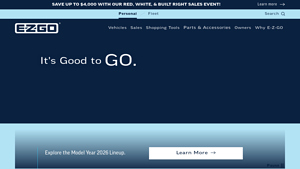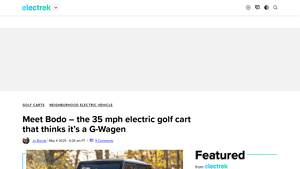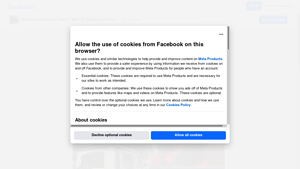G Wagon Golf Cart Guide: Type,Cost,Material…
Introduction: Navigating the Global Market for g wagon golf cart
In the competitive landscape of luxury recreational vehicles, sourcing a G Wagon golf cart can present unique challenges for international B2B buyers. The growing demand for stylish, high-performance golf carts that echo the iconic design of the Mercedes G-Class has created a niche market. This comprehensive guide addresses key aspects of navigating the global market for G Wagon golf carts, offering insights into various models, applications, and market trends.
Buyers will find detailed information on the different types of G Wagon golf carts available, from the electric E-Wagon G600 to luxury variants with advanced features like digital instrument clusters and rear entertainment systems. The guide further explores the importance of supplier vetting, ensuring that buyers can confidently select reputable manufacturers and distributors who meet their quality and service standards.
Understanding the cost implications, including pricing benchmarks from regions like Africa, South America, the Middle East, and Europe, is critical for making informed purchasing decisions. By equipping B2B buyers with the necessary knowledge about product specifications, market dynamics, and supplier evaluation, this guide empowers businesses to make strategic investments that enhance their offerings and satisfy customer expectations. As the market for G Wagon golf carts continues to evolve, staying informed will be key to maintaining a competitive edge.
Understanding g wagon golf cart Types and Variations
| Type Name | Key Distinguishing Features | Primary B2B Applications | Brief Pros & Cons for Buyers |
|---|---|---|---|
| E-Wagon G600 | Electric, 30 mph top speed, 80-mile range, luxury features | Golf courses, resorts, luxury rentals | Pros: Stylish design, eco-friendly; Cons: Higher initial cost |
| Bodo G-Wagon | Miniature, 20 hp, high-tech interior, compact size | Golf courses, promotional events | Pros: Unique appearance, great for branding; Cons: Limited power and cargo space |
| Garia Golf Cart | High-end materials, customizable, advanced tech features | Corporate events, high-end resorts | Pros: Premium build quality, luxury appeal; Cons: Expensive maintenance |
| Breezy EV Esteem | Affordable, multiple seating options, basic features | Community parks, event transport | Pros: Cost-effective, versatile; Cons: Lacks luxury features |
| Custom G-Wagon Variants | Tailored designs, varying power options, unique branding | Private clubs, luxury accommodations | Pros: Fully customizable, brand recognition; Cons: Potentially long lead times |
What Are the Key Features of the E-Wagon G600 Golf Cart?
The E-Wagon G600 stands out with its electric drivetrain, capable of reaching speeds of 30 mph and an impressive 80-mile range on a single charge. It is designed for those seeking a blend of luxury and performance on the golf course. The cart includes features like air conditioning, rear entertainment screens, and a multi-screen instrument cluster, making it suitable for upscale golf courses and luxury rentals. For B2B buyers, its eco-friendly nature and stylish design can enhance brand image, though the higher price point may require careful budget considerations.
How Does the Bodo G-Wagon Compare to Other Variants?
The Bodo G-Wagon is a miniature golf cart that mimics the iconic G-Class SUV design. With a 20 hp motor and a compact size, it is perfect for promotional events and creating a unique presence on the golf course. It offers high-tech interior features, including a digital instrument cluster and rear entertainment screens. While it is an eye-catching option for branding, its limited power and cargo capacity may not meet the needs of all businesses, particularly those requiring heavier loads or longer travel distances.
Why Choose the Garia Golf Cart for Corporate Events?
The Garia Golf Cart is a premium option made from high-end materials and customizable features. It is designed for corporate events and high-end resorts where luxury and sophistication are paramount. Advanced technology, including a robust infotainment system, adds to its appeal. However, its higher price and maintenance costs may deter budget-conscious buyers. For businesses looking to make a lasting impression, the Garia offers a compelling mix of performance and prestige.
What Advantages Does the Breezy EV Esteem Provide for Community Use?
The Breezy EV Esteem is an affordable golf cart that caters to community parks and event transport. It offers multiple seating options and basic features, making it a versatile choice for local governments or event organizers. While it lacks the luxury and advanced technology of higher-end models, its cost-effectiveness and functionality make it appealing for budget-conscious buyers. Businesses can leverage this model for community engagement without significant financial strain.
How Can Custom G-Wagon Variants Benefit Luxury Brands?
Custom G-Wagon variants allow businesses to tailor designs and power options to their specific needs, making them ideal for private clubs and luxury accommodations. These carts can be fully branded, enhancing recognition and prestige. However, potential lead times for customization should be considered in planning. For B2B buyers aiming for exclusivity and brand impact, these bespoke options can be a worthwhile investment, provided the timelines and costs align with their operational strategies.
Key Industrial Applications of g wagon golf cart
| Industry/Sector | Specific Application of g wagon golf cart | Value/Benefit for the Business | Key Sourcing Considerations for this Application |
|---|---|---|---|
| Golf and Leisure | Premium transportation on golf courses | Enhances customer experience and promotes brand prestige | Customization options, electric power, and luxury features |
| Hospitality and Tourism | Shuttle service within resorts and theme parks | Provides a unique and memorable transport option for guests | Durability, seating capacity, and aesthetic appeal |
| Real Estate and Property Management | Property tours for luxury developments | Attracts potential buyers with an upscale presentation | Reliability, battery life, and maintenance support |
| Event Management | Transporting guests at high-profile events | Elevates event experience and reinforces brand image | Custom branding options, comfort features, and range |
| Corporate and Executive Travel | Executive transport within corporate campuses | Offers a stylish and efficient way to move executives | Safety features, advanced technology, and comfort |
How is the G Wagon Golf Cart Used in the Golf and Leisure Industry?
The G Wagon golf cart serves as a premium mode of transportation on golf courses, enhancing the overall experience for players and guests. Its eye-catching design and luxury features, such as air conditioning and advanced entertainment systems, contribute to a high-end golfing atmosphere. For B2B buyers in this sector, customization options are essential to align with branding and course aesthetics, alongside considerations for electric power to maintain sustainability.
What Role Does the G Wagon Golf Cart Play in Hospitality and Tourism?
In the hospitality industry, G Wagon golf carts are utilized as shuttles within resorts and theme parks, providing guests with a unique and memorable transport experience. Their stylish appearance and comfort elevate the overall guest experience, making them an attractive feature for luxury resorts. Buyers in this sector should prioritize durability and seating capacity to accommodate varying guest needs while ensuring that the vehicles can withstand high traffic usage.
How Can Real Estate Firms Benefit from G Wagon Golf Carts?
Real estate and property management companies can leverage G Wagon golf carts for conducting property tours, particularly for luxury developments. The cart’s upscale design can impress potential buyers, offering a unique way to showcase properties. Buyers in this industry should focus on the cart’s reliability and battery life, ensuring that it can support multiple tours without interruption, along with maintenance support for long-term use.
What Advantages Do G Wagon Golf Carts Offer for Event Management?
In event management, G Wagon golf carts are perfect for transporting guests at high-profile events, enhancing the overall experience and reinforcing the brand’s image. Their luxurious and stylish design can leave a lasting impression on attendees. When sourcing these vehicles, companies should consider custom branding options to align with event themes and ensure comfort features to cater to guests.
How Are G Wagon Golf Carts Used in Corporate and Executive Travel?
For corporate campuses, G Wagon golf carts provide a stylish and efficient means of transporting executives between meetings and facilities. Their advanced technology and comfort features make them suitable for high-profile corporate environments. Buyers in this sector should prioritize safety features and the latest technology to ensure a seamless travel experience for executives, alongside considerations for maintenance and service support.
3 Common User Pain Points for ‘g wagon golf cart’ & Their Solutions
Scenario 1: High Initial Investment Concerns for G Wagon Golf Carts
The Problem: B2B buyers, especially those operating in regions like Africa and South America, often face significant budget constraints. The G Wagon golf cart, with its price tag ranging from $21,900 to $23,900, can be a tough sell. Buyers may worry about justifying such an expenditure, particularly when there are cheaper alternatives available. The apprehension is compounded by the need to ensure a return on investment, whether for rental fleets, resorts, or corporate events.
The Solution: To address initial investment concerns, buyers should conduct a thorough cost-benefit analysis that includes not just the purchase price but also potential revenue generation from using the G Wagon golf cart. Consider the cart’s appeal as a luxury item that can attract high-end clientele to golf courses, resorts, or events. Additionally, explore financing options or leasing programs that may be available, which can spread out the cost over time and reduce the immediate financial burden. By emphasizing the cart’s unique selling proposition—its luxury aesthetic, advanced features, and potential to enhance customer experience—buyers can make a stronger case for the investment.
Scenario 2: Maintenance and Service Challenges in Remote Areas
The Problem: Buyers in regions with limited access to automotive service centers may worry about the long-term maintenance of electric golf carts like the G Wagon. The potential for breakdowns, coupled with the need for specialized knowledge to service lithium batteries and high-tech components, can deter purchases. This is particularly pertinent for businesses relying on these carts for daily operations, where downtime can lead to lost revenue.
The Solution: To mitigate maintenance concerns, B2B buyers should establish a proactive maintenance plan. This includes sourcing parts and service agreements from suppliers who offer comprehensive support packages. Training local technicians on the specific needs of the G Wagon golf cart can also be beneficial. Buyers might consider creating a partnership with manufacturers for regular training sessions, ensuring that local staff are equipped to handle common issues. Additionally, investing in a maintenance toolkit with essential replacement parts can minimize downtime and empower businesses to perform basic repairs on-site.
Scenario 3: Navigating Regulatory Compliance for Electric Golf Carts
The Problem: International buyers, particularly those in the Middle East and Europe, may face regulatory hurdles regarding the use of electric golf carts on public roads or golf courses. Each region can have unique regulations regarding vehicle specifications, emissions, and safety features. Navigating these laws can be daunting and may result in additional costs or delayed implementations.
The Solution: To navigate regulatory compliance, B2B buyers should engage with local authorities early in the purchasing process. Conducting research on the specific regulations governing electric vehicles in the intended market is crucial. Buyers should ensure that the G Wagon golf cart complies with all local laws, including safety standards and registration requirements. Partnering with a legal expert or consultant familiar with automotive regulations in the target market can also provide invaluable insights. Additionally, choose suppliers who offer documentation and support for regulatory compliance, which can simplify the process and help buyers avoid potential fines or operational setbacks.
Strategic Material Selection Guide for g wagon golf cart
What are the Key Materials for Manufacturing a G Wagon Golf Cart?
When considering the strategic material selection for a G Wagon golf cart, several materials stand out due to their unique properties and performance characteristics. This analysis focuses on four common materials: aluminum, steel, fiberglass, and plastic. Each material has its own advantages and disadvantages, which are critical for B2B buyers, especially those operating in diverse markets like Africa, South America, the Middle East, and Europe.
How Does Aluminum Benefit the G Wagon Golf Cart Design?
Aluminum is a lightweight, corrosion-resistant metal that is often used in the frames and body panels of golf carts. Its key properties include a high strength-to-weight ratio and excellent resistance to oxidation, which is beneficial for longevity in various environmental conditions.
Pros: Aluminum is durable and lightweight, which enhances the golf cart’s performance and efficiency. It is also relatively easy to manufacture and can be extruded into complex shapes, making it suitable for custom designs.
Cons: The primary drawback of aluminum is its cost, which can be higher than other materials like steel. Additionally, while it is strong, it may not withstand impacts as well as steel, leading to potential damage in rugged terrains.
Impact on Application: Aluminum’s corrosion resistance makes it ideal for humid or coastal environments, ensuring the cart remains functional and aesthetically pleasing.
Considerations for International Buyers: Compliance with international standards such as ASTM for aluminum alloys is crucial. Buyers should also consider the availability of aluminum in their regions, as supply chain issues can affect costs.
What Role Does Steel Play in G Wagon Golf Cart Construction?
Steel is another common material, particularly for structural components due to its strength and durability. It offers excellent mechanical properties, including high tensile strength and impact resistance.
Pros: Steel is generally more cost-effective than aluminum and provides superior strength, making it ideal for parts that require robustness, such as the frame and suspension.
Cons: The main disadvantage of steel is its susceptibility to rust and corrosion unless properly coated or treated. This can lead to increased maintenance costs over time.
Impact on Application: Steel’s high strength is beneficial for heavy-duty applications, but it may require additional treatments or coatings for corrosion resistance, particularly in humid or coastal climates.
Considerations for International Buyers: Buyers should ensure compliance with local regulations regarding steel quality and treatment standards, such as those outlined by JIS in Japan or DIN in Germany.
How Does Fiberglass Enhance the Aesthetic and Functional Aspects?
Fiberglass is often used for body panels and aesthetic components of the G Wagon golf cart. It is lightweight, strong, and can be molded into complex shapes.
Pros: Fiberglass offers excellent corrosion resistance and can be produced in various colors without the need for painting. It also provides good insulation against temperature fluctuations.
Cons: The manufacturing process for fiberglass can be complex and labor-intensive, leading to higher production costs. Additionally, it may not be as impact-resistant as metals.
Impact on Application: Fiberglass is suitable for applications requiring intricate designs and aesthetics, making it ideal for the exterior of the golf cart.
Considerations for International Buyers: Buyers should verify that the fiberglass used meets international standards for safety and durability, particularly in markets with specific regulations.
Why is Plastic a Viable Option for G Wagon Golf Carts?
Plastic, particularly high-density polyethylene (HDPE), is frequently used in components such as seats, dashboards, and storage compartments.
Pros: Plastic is lightweight, resistant to corrosion, and generally more affordable than metals. It is also easy to mold into various shapes, allowing for creative designs.
Cons: While plastic is durable, it may not provide the same level of strength as metals, making it less suitable for structural components. It can also degrade over time when exposed to UV light unless treated.
Impact on Application: Plastic is ideal for non-structural components, contributing to the overall weight reduction of the golf cart.
Considerations for International Buyers: Compliance with standards related to plastic materials, such as those from ASTM, is essential. Buyers should also consider the environmental impact of plastic production and disposal in their regions.
Summary Table of Material Selection for G Wagon Golf Cart
| Material | Typical Use Case for g wagon golf cart | Key Advantage | Key Disadvantage/Limitation | Relative Cost (Low/Med/High) |
|---|---|---|---|---|
| Aluminum | Frame and body panels | Lightweight and corrosion-resistant | Higher cost and impact vulnerability | High |
| Steel | Structural components | Cost-effective and high strength | Susceptible to rust without treatment | Medium |
| Fiberglass | Body panels and aesthetic components | Corrosion-resistant and moldable | Complex manufacturing process | Medium |
| Plastic | Seats, dashboards, and storage | Lightweight and affordable | Less strength and UV degradation risk | Low |
This strategic material selection guide provides B2B buyers with insights into the materials best suited for G Wagon golf carts, helping them make informed purchasing decisions in the global market.
In-depth Look: Manufacturing Processes and Quality Assurance for g wagon golf cart
What Are the Key Manufacturing Processes for G Wagon Golf Carts?
The manufacturing process of G Wagon golf carts, such as the E-Wagon G600 and Bodo G-Wagon, involves several critical stages that ensure quality and performance. Understanding these processes is essential for B2B buyers looking to source these vehicles for resale or fleet operations.
1. Material Preparation: What Materials Are Used?
The initial stage involves selecting high-quality materials that contribute to the durability and aesthetics of the golf cart. Common materials include:
- Steel and Aluminum: Used for the frame and structural components due to their strength and lightweight properties.
- Plastic Composites: Employed for body panels and interior components, providing a balance of weight reduction and design flexibility.
- Lithium-Ion Batteries: Essential for the electric drivetrain, offering a compact and efficient power source.
Once materials are selected, they undergo preparation, which includes cutting, molding, and pre-treatment processes to ensure they meet specifications before moving to the forming stage.
2. Forming: How Are Components Shaped?
Forming is a crucial phase where raw materials are transformed into specific shapes. Key techniques include:
- Stamping: Used for creating metal components such as the chassis and body panels. This process involves pressing sheets of metal into molds to achieve precise shapes.
- Injection Molding: Often utilized for plastic components, this method involves injecting molten plastic into a mold to form parts like dashboards and seating.
- Welding and Joining: These processes connect various metal components, ensuring structural integrity. Techniques like MIG welding and spot welding are commonly employed.
The forming stage is vital for creating the high-quality, visually appealing components that resemble the luxury design of the G-Class.
3. Assembly: What Steps Are Involved in Final Assembly?
During assembly, all components are brought together to create the finished product. This stage typically includes:
- Sub-Assembly: Individual systems such as the drivetrain, electrical system, and interior features are assembled separately before being integrated into the main chassis.
- Main Assembly Line: Components are assembled in a systematic manner, often using conveyor systems to enhance efficiency. This can include the installation of features like power windows, infotainment systems, and heating/cooling units.
Quality control checks are integrated throughout the assembly line to catch any defects early in the process, ensuring that only high-quality products move to the next stage.
4. Finishing: How Is the Final Product Prepared?
Finishing processes enhance the aesthetic appeal and protect the golf cart from environmental factors. Key steps include:
- Painting and Coating: High-quality paints and coatings are applied to provide a durable, attractive finish. This often includes multiple layers for depth and protection.
- Quality Inspection: A thorough inspection checks for paint quality, fitment, and overall finish. Any imperfections are corrected before the product is prepared for shipping.
The finishing stage is critical for ensuring that the golf carts meet the aesthetic expectations of consumers while also providing necessary durability.
What Quality Assurance Standards Are Relevant for G Wagon Golf Carts?
Quality assurance is a fundamental aspect of manufacturing G Wagon golf carts, ensuring that they meet both safety and performance standards. For international B2B buyers, understanding these standards can aid in making informed purchasing decisions.
International Standards: Which Certifications Should Buyers Look For?
- ISO 9001: This standard outlines the requirements for a quality management system (QMS). Manufacturers that are ISO 9001 certified demonstrate a commitment to quality and continuous improvement.
- CE Marking: For products sold in the European Economic Area, CE marking indicates compliance with EU safety, health, and environmental protection standards.
- API Standards: In some regions, adherence to American Petroleum Institute (API) standards may be relevant, particularly for components involving fluids and hydraulics.
Buyers should verify that their suppliers hold these certifications, as they ensure that products are manufactured to recognized quality benchmarks.
How Are Quality Control Checkpoints Structured in Golf Cart Manufacturing?
Quality control (QC) checkpoints are essential throughout the manufacturing process to maintain product integrity. Key checkpoints include:
- Incoming Quality Control (IQC): This initial checkpoint assesses the quality of incoming materials and components before they are used in production. Any non-compliant materials are rejected.
- In-Process Quality Control (IPQC): Conducted during the manufacturing process, IPQC involves regular inspections at various stages of production. This ensures that any defects are identified and rectified promptly.
- Final Quality Control (FQC): At the end of the assembly line, FQC checks the finished product for overall quality, functionality, and safety. This may include performance testing and visual inspections.
What Testing Methods Are Commonly Used in Quality Assurance?
Various testing methods are employed to ensure that G Wagon golf carts meet quality standards:
- Functional Testing: Assessing the performance of electrical systems, braking, and drivetrain components.
- Durability Testing: Subjecting the cart to stress tests to evaluate its resilience under normal operating conditions.
- Safety Testing: Ensuring compliance with safety regulations, including stability tests and safety feature assessments.
How Can B2B Buyers Verify Supplier Quality Control?
B2B buyers should implement robust verification processes to ensure supplier quality:
- Supplier Audits: Conducting regular audits of suppliers can help assess their compliance with quality standards and manufacturing practices.
- Quality Reports: Requesting detailed quality reports that outline inspection results and any corrective actions taken can provide insight into a supplier’s commitment to quality.
- Third-Party Inspections: Engaging independent inspection agencies can offer an unbiased evaluation of product quality and compliance with international standards.
What Are the Quality Control Nuances for International Buyers?
For international buyers, understanding the nuances of quality control is critical:
- Regulatory Compliance: Each region may have specific compliance requirements. Buyers should familiarize themselves with local regulations in Africa, South America, the Middle East, and Europe.
- Cultural Considerations: Communication styles and business practices can differ significantly across regions. Building strong relationships with suppliers can aid in ensuring consistent quality.
- Logistics and Supply Chain: Buyers should consider the entire supply chain and logistics processes, as these can impact product quality during transport.
By thoroughly understanding the manufacturing processes and quality assurance standards, B2B buyers can make informed decisions when sourcing G Wagon golf carts. This knowledge not only helps in selecting reliable suppliers but also ensures that the final products meet the expectations of their customers.
Practical Sourcing Guide: A Step-by-Step Checklist for ‘g wagon golf cart’
Introduction
This guide serves as a practical checklist for B2B buyers looking to procure a G Wagon golf cart. As the demand for stylish and high-performance golf carts rises, particularly in regions like Africa, South America, the Middle East, and Europe, having a clear sourcing strategy can facilitate a smoother purchasing process. This checklist will help you make informed decisions and ensure you select the best product for your needs.
Step 1: Define Your Technical Specifications
Begin by outlining the specific features and capabilities you require in a G Wagon golf cart. Consider factors such as power type (electric vs. gas), seating capacity, speed, and range.
– Performance Needs: Determine the required top speed and distance per charge, especially if the cart will be used in larger golf courses or venues.
– Comfort Features: Identify essential amenities like climate control, entertainment systems, and safety features to enhance user experience.
Step 2: Research Available Models and Brands
Conduct thorough research to identify which models meet your specifications. Focus on reputable brands known for quality and reliability, such as E-Wagon and Bodo.
– Market Comparison: Compare different models based on features, price, and customer reviews to gauge overall satisfaction.
– Innovative Features: Look for unique selling points such as advanced infotainment systems or luxurious finishes that can distinguish your choice.
Step 3: Evaluate Potential Suppliers
Before making a commitment, it’s crucial to vet suppliers thoroughly. Request company profiles, case studies, and references from buyers in a similar industry or region.
– Supplier Reliability: Check their track record for delivering quality products on time. A supplier with a strong reputation can save you from future headaches.
– Support Services: Inquire about after-sales support, warranties, and maintenance services, which are vital for long-term satisfaction.
Step 4: Verify Compliance and Certifications
Ensure that the golf carts comply with local regulations and safety standards. Ask for certifications that validate the cart’s quality and performance.
– Regulatory Requirements: Depending on your region, certain features may be mandatory. Understanding these can prevent legal issues down the line.
– Environmental Standards: If sustainability is a concern, confirm that the electric carts meet environmental compliance for reduced emissions.
Step 5: Request Quotes and Compare Pricing
Obtain detailed quotes from multiple suppliers to facilitate price comparison. Ensure that the quotes include all costs, such as shipping, taxes, and potential import duties.
– Transparent Pricing: Look for a breakdown of costs to understand what you are paying for, and avoid hidden fees.
– Bulk Discounts: If purchasing multiple units, inquire about volume discounts or special pricing arrangements.
Step 6: Arrange for a Test Drive
Whenever possible, arrange for a test drive of the golf cart. This will give you firsthand experience of its performance, comfort, and features.
– Real-World Performance: Assess how the cart handles in various conditions and whether it meets your expectations.
– User Experience: Involve potential users in the test to gather diverse feedback on comfort and functionality.
Step 7: Finalize Payment and Delivery Terms
Once you have selected a supplier, finalize the payment terms and delivery schedule. Ensure that both parties agree on timelines and payment methods.
– Secure Payment Methods: Use reliable payment channels to protect your investment.
– Delivery Logistics: Confirm the delivery process and any conditions related to installation or setup to ensure a smooth transition.
Following this checklist will equip you with the necessary steps to successfully procure a G Wagon golf cart that aligns with your business needs and expectations.
Comprehensive Cost and Pricing Analysis for g wagon golf cart Sourcing
What Are the Key Cost Components for Sourcing G Wagon Golf Carts?
When analyzing the cost structure for sourcing G Wagon golf carts, several components come into play:
-
Materials: The primary materials include the chassis, body panels, lithium battery, electric motor, and interior components. High-quality materials contribute significantly to the overall cost, impacting durability and performance.
-
Labor: Labor costs encompass both direct and indirect expenses. Skilled labor is required for assembly, particularly for the intricate details that mimic the luxury aesthetics of a G Wagon. Labor costs can vary depending on the geographic location of manufacturing.
-
Manufacturing Overhead: This includes utilities, maintenance, and depreciation of manufacturing equipment. Efficient operations can help keep overhead low, which is vital for competitive pricing.
-
Tooling: Initial tooling costs can be substantial, especially for customized designs. This cost is often amortized over production runs, making it essential to consider the volume of orders.
-
Quality Control (QC): Implementing a robust QC process is crucial for maintaining high standards, particularly since the G Wagon golf cart aims to deliver a luxury experience. QC costs can add up but are necessary to minimize defects and ensure customer satisfaction.
-
Logistics: Transportation costs for shipping finished products to buyers, including tariffs and customs duties for international shipping, can significantly impact overall pricing. Efficient logistics strategies can help mitigate these expenses.
-
Margin: Suppliers typically build a profit margin into their pricing, which can vary based on market competition and perceived value. Understanding the margin structure is vital for buyers to negotiate effectively.
How Do Price Influencers Affect G Wagon Golf Cart Pricing?
Several factors influence the pricing of G Wagon golf carts:
-
Volume/MOQ: The minimum order quantity (MOQ) can affect pricing. Larger orders often receive bulk discounts, making it beneficial for buyers to consolidate purchases.
-
Specs/Customization: Custom features such as color, interior options, and additional technology can increase costs. Buyers should clearly define their specifications to receive accurate quotes.
-
Materials: The choice of materials affects both the quality and price. Premium materials may enhance the cart’s appeal but will also increase costs.
-
Quality/Certifications: Certifications can influence pricing, as products meeting higher standards often carry a premium. Buyers should verify that suppliers can provide necessary certifications for compliance in their markets.
-
Supplier Factors: The reputation and reliability of suppliers can affect pricing. Established suppliers may charge more due to their proven track record, while newer entrants may offer lower prices to attract business.
-
Incoterms: Understanding Incoterms is crucial for international buyers. These terms dictate who bears the costs and risks during shipping, influencing the final price.
What Tips Can Help Buyers Optimize Costs When Sourcing G Wagon Golf Carts?
-
Negotiation: Engage suppliers in discussions about pricing, terms, and discounts. Demonstrating a willingness to negotiate can lead to better deals, especially for bulk orders.
-
Cost-Efficiency: Evaluate the total cost of ownership (TCO), which includes maintenance, parts availability, and resale value. A higher initial price may yield long-term savings through durability and lower operational costs.
-
Pricing Nuances for International Buyers: Buyers from regions such as Africa, South America, and the Middle East should account for currency fluctuations, import tariffs, and shipping times when considering costs. Establishing relationships with local distributors can help mitigate these challenges.
-
Evaluate Supplier Stability: Ensure that the suppliers you engage with have a stable financial background and a reliable supply chain. This stability reduces the risk of disruptions that could affect pricing and availability.
Disclaimer on Indicative Prices
It is essential to note that prices for G Wagon golf carts can vary based on numerous factors, including market conditions, supplier negotiations, and specific configurations. The indicative pricing for models like the E-Wagon G600 ranges from approximately $21,900 to $23,900, depending on features and specifications. Buyers are encouraged to conduct thorough market research and engage directly with suppliers for the most accurate and current pricing.
Alternatives Analysis: Comparing g wagon golf cart With Other Solutions
Understanding Alternatives to the G Wagon Golf Cart
When considering the G Wagon golf cart, it’s essential for international B2B buyers to explore alternative solutions that may better fit their specific needs. Various options exist in the market, each offering distinct advantages and disadvantages in terms of performance, cost, maintenance, and suitability for different environments. Below is a comparative analysis of the G Wagon golf cart against two viable alternatives: the traditional golf cart and the electric utility vehicle.
Comparison Table
| Comparison Aspect | G Wagon Golf Cart | Traditional Golf Cart | Electric Utility Vehicle |
|---|---|---|---|
| Performance | 35 mph top speed, 80-mile range | 15-20 mph, 30-50 mile range | 25-30 mph, 50-100 mile range |
| Cost | $21,900 – $23,900 | $5,000 – $10,000 | $15,000 – $30,000 |
| Ease of Implementation | Requires charging station | Minimal setup required | Requires charging station |
| Maintenance | Moderate (battery upkeep) | Low (simple mechanics) | Moderate (battery and motors) |
| Best Use Case | Luxury golf experience | Golf courses, leisure | Work sites, transport |
Detailed Breakdown of Alternatives
Traditional Golf Cart
Traditional golf carts are a popular choice for golf courses and recreational areas. They typically feature lower speeds (15-20 mph) and a more limited range (30-50 miles), making them suitable for short-distance travel. The cost of these carts ranges from $5,000 to $10,000, making them a budget-friendly option. Their maintenance is generally low due to simpler mechanics, but they may lack the luxury and technological features found in the G Wagon golf cart. For businesses focused on cost-effectiveness and basic functionality, traditional golf carts remain a reliable choice.
Electric Utility Vehicle
Electric utility vehicles (EUVs) provide a more robust alternative to golf carts. With a top speed of 25-30 mph and a range of 50-100 miles, EUVs are versatile for various applications, including work sites, campuses, and urban transport. The price point ranges from $15,000 to $30,000, reflecting their enhanced capabilities and features. Maintenance is moderate, as they require care for both the battery and the electric motors. EUVs are ideal for businesses needing a practical solution for transporting goods or personnel over longer distances while maintaining a more eco-friendly profile.
Conclusion: How to Choose the Right Solution for Your Needs
Selecting the right vehicle for your business hinges on understanding your specific requirements and operational context. If luxury and brand recognition are paramount, the G Wagon golf cart stands out, offering a unique experience that turns heads on the golf course. However, for businesses prioritizing functionality and cost-effectiveness, traditional golf carts or electric utility vehicles may provide better value. Assessing factors such as budget, intended use, and maintenance capabilities will guide B2B buyers toward the most suitable choice for their needs, ensuring a wise investment that aligns with their strategic goals.
Essential Technical Properties and Trade Terminology for g wagon golf cart
What Are the Key Technical Properties of a G Wagon Golf Cart?
When evaluating the G Wagon golf cart, several essential technical properties are critical for B2B buyers to understand. These specifications not only reflect the vehicle’s performance but also influence purchasing decisions based on operational needs and market positioning.
1. Power Type: Electric
Electric power is the primary propulsion method for G Wagon golf carts, providing a cleaner and quieter alternative to gas-powered models. The electric drivetrain typically includes a lithium battery, which offers advantages such as lower maintenance costs and reduced environmental impact. For buyers, this means considering the total cost of ownership, especially in regions with stringent environmental regulations.
2. Battery Capacity: 10 kWh
The battery capacity determines how far the golf cart can travel on a single charge. A 10 kWh battery can support ranges of up to 80 miles, making it suitable for extended use on golf courses or resorts. For B2B buyers, understanding battery capacity is crucial for assessing the cart’s utility and ensuring it meets the operational demands of their business.
3. Motor Power: 15 kW
The motor power, rated at 15 kW, translates to a top speed of approximately 30-35 mph. This performance metric is essential for ensuring that the golf cart can handle varying terrains and user expectations. Buyers should consider the motor’s power in relation to their specific use case, whether it’s for leisurely rides or utility purposes.
4. Seating Capacity: 4 Passengers
Most G Wagon golf carts are designed to accommodate four passengers comfortably. This specification is vital for businesses that need to transport multiple clients or staff members simultaneously. Ensuring adequate seating capacity can significantly enhance customer experience in hospitality settings.
5. Safety Features:
G Wagon golf carts often come equipped with advanced safety features such as 4-wheel disc brakes, rearview cameras, and power steering. These features not only enhance user safety but also reduce liability for businesses that operate these vehicles in public or high-traffic areas.
6. Build Quality: Automotive-Grade
The use of automotive-grade materials ensures durability and longevity, essential for any B2B investment. High-quality construction can reduce repair costs and extend the cart’s operational life, making it a more economical choice over time.
What Are the Common Trade Terms Related to G Wagon Golf Carts?
Understanding industry jargon is crucial for successful negotiations and transactions in the B2B marketplace. Here are some common terms you may encounter:
1. OEM (Original Equipment Manufacturer)
This term refers to companies that produce parts and equipment that may be marketed by another manufacturer. In the context of golf carts, knowing the OEM can help buyers understand the quality and reliability of the parts used, which is essential for maintenance and service.
2. MOQ (Minimum Order Quantity)
MOQ indicates the smallest quantity of a product that a supplier is willing to sell. For B2B buyers, understanding MOQ is important for budgeting and inventory planning, especially when purchasing multiple units of golf carts for fleet operations.
3. RFQ (Request for Quotation)
An RFQ is a standard business process where buyers request pricing and terms from suppliers for specific products. This is a critical step in the procurement process, enabling buyers to compare prices and negotiate favorable terms.
4. Incoterms (International Commercial Terms)
These are pre-defined commercial terms published by the International Chamber of Commerce (ICC) that clarify the responsibilities of buyers and sellers in international transactions. Familiarity with Incoterms can help B2B buyers understand shipping responsibilities and costs, which is vital for budgeting and logistics.
5. Lead Time
Lead time refers to the amount of time it takes from placing an order until the product is delivered. Understanding lead times is crucial for B2B buyers to manage their inventory and meet customer demand efficiently.
By grasping these technical properties and trade terms, B2B buyers can make informed decisions when considering the purchase of G Wagon golf carts, ensuring that their investment aligns with operational goals and market demands.
Navigating Market Dynamics and Sourcing Trends in the g wagon golf cart Sector
What Are the Key Market Trends Influencing the G Wagon Golf Cart Sector?
The g wagon golf cart market is experiencing notable growth driven by several global factors. The increasing popularity of electric vehicles (EVs) aligns with a rising consumer preference for sustainable and eco-friendly transportation options. This trend is particularly pronounced in regions like Europe and North America, where stringent emissions regulations encourage the adoption of electric golf carts. International buyers, especially from Africa and South America, are also capitalizing on the growing leisure and tourism sectors, with golf tourism significantly boosting demand for high-end golf carts.
Emerging technologies, such as advanced lithium battery systems, are enhancing the efficiency and performance of these vehicles. Buyers are increasingly seeking features like extended range (up to 80 miles), high-speed capabilities (up to 35 mph), and sophisticated infotainment systems. The market is also witnessing a shift towards customization, where buyers prefer personalized aesthetics and functionalities that reflect luxury and style, akin to the iconic G-Class.
Additionally, the rise of online marketplaces and direct-to-consumer sales channels is changing the sourcing dynamics, providing international buyers with a broader selection and competitive pricing. This evolution allows businesses to compare features and prices more effectively, streamlining the procurement process.
How Is Sustainability Shaping Sourcing Practices in the G Wagon Golf Cart Sector?
Sustainability and ethical sourcing are becoming paramount in the g wagon golf cart sector. As global awareness of environmental issues grows, businesses are increasingly prioritizing the procurement of golf carts that minimize ecological impact. This includes sourcing materials that are recyclable or made from sustainable resources, such as eco-friendly composites and metals.
Moreover, manufacturers are adopting ‘green’ certifications, such as ISO 14001, to demonstrate their commitment to environmental management. Buyers are encouraged to inquire about the sourcing practices of their suppliers, ensuring that materials are ethically obtained and that production processes adhere to sustainability standards.
Investing in sustainable options not only mitigates environmental impact but also enhances brand reputation, particularly among eco-conscious consumers. As the market evolves, international buyers should focus on sourcing from manufacturers that prioritize transparency in their supply chains and are committed to reducing carbon footprints through innovative practices.
What Is the Historical Context of the G Wagon Golf Cart Market?
The g wagon golf cart’s evolution reflects broader trends in automotive design and consumer preferences. Initially inspired by the luxury and ruggedness of the Mercedes G-Class, manufacturers recognized the potential to adapt this iconic design into a compact, electric golf cart. The introduction of models like the E-Wagon and Bodo G-Wagon has redefined the niche, appealing to affluent consumers seeking stylish, high-performance vehicles for leisure activities.
Over the years, advancements in battery technology and electric drivetrains have significantly improved the functionality and appeal of these golf carts. As a result, the market has shifted from basic utility vehicles to sophisticated, tech-savvy options that offer both luxury and practicality. This transformation underscores the importance of innovation in meeting the evolving demands of international B2B buyers, particularly in regions where leisure and lifestyle products are in high demand.
Frequently Asked Questions (FAQs) for B2B Buyers of g wagon golf cart
-
How do I choose the right supplier for G Wagon golf carts?
Selecting the right supplier involves thorough research and due diligence. Start by assessing the supplier’s reputation in the market through reviews and testimonials. Verify their production capabilities, quality certifications, and compliance with international standards. Request samples to evaluate the product quality firsthand. Additionally, consider their after-sales support, warranty policies, and responsiveness to inquiries, as these factors significantly impact your long-term business relationship. -
What are the key features to look for in a G Wagon golf cart?
When sourcing G Wagon golf carts, prioritize features such as battery type, range, and speed. Look for lithium battery options for efficiency and longevity, with a minimum range of 80 miles for optimal usability. Evaluate the cart’s build quality, ensuring it includes essential amenities like air conditioning, power steering, and a digital instrument cluster. Customization options are also crucial, allowing you to tailor features to meet specific market demands. -
What are the typical minimum order quantities (MOQs) for G Wagon golf carts?
MOQs can vary significantly among suppliers, typically ranging from 5 to 50 units for G Wagon golf carts. Factors influencing MOQ include production capacity, customization requests, and shipping arrangements. Discuss your requirements with potential suppliers to negotiate favorable terms. Understanding the MOQ is essential for budgeting and inventory planning, especially when catering to specific regional markets. -
What payment terms should I expect when purchasing G Wagon golf carts?
Payment terms can differ based on supplier policies and the transaction size. Common arrangements include a deposit of 30-50% upfront, with the balance due upon shipment or delivery. Some suppliers may offer financing options or extended payment plans for larger orders. Always clarify payment methods accepted, such as wire transfers or letters of credit, and ensure that terms are documented in a formal agreement to avoid disputes. -
How can I ensure quality assurance for G Wagon golf carts?
Quality assurance should be a priority when sourcing G Wagon golf carts. Establish clear quality standards and specifications with your supplier before production begins. Request regular updates and photos during the manufacturing process. Conduct pre-shipment inspections through third-party services to verify that the carts meet your quality criteria. Implementing a robust quality control process helps mitigate risks associated with defective products and enhances customer satisfaction. -
What logistics considerations should I keep in mind for importing G Wagon golf carts?
When importing G Wagon golf carts, consider factors such as shipping methods, customs regulations, and associated costs. Choose between air freight for speed or sea freight for cost-effectiveness. Familiarize yourself with import duties and taxes specific to your country, as these can impact overall pricing. Collaborate with a reliable logistics provider to ensure timely delivery and compliance with all regulatory requirements, minimizing potential delays. -
Are there customization options available for G Wagon golf carts?
Yes, many suppliers offer customization options for G Wagon golf carts. You can typically request modifications in color, interior features, and additional amenities such as upgraded entertainment systems or enhanced safety features. Discuss your specific requirements during the initial negotiations to ensure that the supplier can accommodate your needs. Customization can help differentiate your offering in the market and cater to specific customer preferences. -
What market trends should I consider when selling G Wagon golf carts?
Stay informed about market trends such as the growing demand for electric vehicles and eco-friendly transportation solutions. Consumer preferences are shifting towards luxury and lifestyle products, making G Wagon golf carts appealing in upscale markets. Additionally, consider regional factors such as golf course expansions, leisure trends, and tourism growth in your target areas. Understanding these trends will help you tailor your marketing strategy and product offerings effectively.
Important Disclaimer & Terms of Use
⚠️ Important Disclaimer
The information provided in this guide, including content regarding manufacturers, technical specifications, and market analysis, is for informational and educational purposes only. It does not constitute professional procurement advice, financial advice, or legal advice.
While we have made every effort to ensure the accuracy and timeliness of the information, we are not responsible for any errors, omissions, or outdated information. Market conditions, company details, and technical standards are subject to change.
B2B buyers must conduct their own independent and thorough due diligence before making any purchasing decisions. This includes contacting suppliers directly, verifying certifications, requesting samples, and seeking professional consultation. The risk of relying on any information in this guide is borne solely by the reader.
Top 7 G Wagon Golf Cart Manufacturers & Suppliers List
1. Bodo – G-Wagon E-Wagon
Domain: carscoops.com
Registered: 2009 (16 years)
Introduction: Mercedes G-Class-inspired golf cart known as the Bodo G-Wagon / E-Wagon. Key features include: 20 hp (15 kW / 20 PS) motor, 10 kWh battery, top speed of 35 mph (56 km/h), travel range of up to 80 miles (129 km) between charges, four screens including a digital instrument cluster and dual screen rear entertainment system, power windows and locks, heater and air conditioner, rearview camera, working…
2. Canyon Lake – Bremark E-Wagon Golf Cart
Domain: canyonlakemobile.com
Registered: 2021 (4 years)
Introduction: Canyon Lake Mobile Bremark E-Wagon 4 Passenger Golf Cart
3. E-Wagon – G600 Mini G-Wagon Electric
Domain: gulfcartscustom.com
Registered: 2023 (2 years)
Introduction: {“model”:”G600″,”make”:”E-Wagon”,”year”:”2025″,”condition”:”New”,”type”:”Mini G-Wagon Electric”,”seating_capacity”:”4 Passenger”,”price”:”$23,900″,”location”:”Santa Rosa Beach, FL”,”stock_number”:”N/A”}
4. ScrapingDog – Instagram Data Scraping
Domain: instagram.com
Registered: 2004 (21 years)
Introduction: Contact us at info@scrapingdog.com for scraping Instagram. Let us know how many pages you want to scrape per month.
5. E-Z-GO – Golf Carts and Promotions
Domain: ezgo.txtsv.com
Registered: 2015 (10 years)
Introduction: E-Z-GO offers a range of golf carts including: RXV RXV® 2 Electric Gas starting at $8,914, RXV® 4 Electric Gas starting at $9,879, Liberty Electric LSV starting at $12,699, Express 4 Gas starting at $11,569, and Express 6 Electric Gas starting at $11,850. Special promotions include savings of up to $4,000 during the Red, White, & Built Right Sales Event and offers for Sam’s Club and USAA members. …
6. Bodo – G-Wagon Golf Cart
Domain: electrek.co
Registered: 2013 (12 years)
Introduction: Product Name: Bodo G-Wagon Golf Cart
Top Speed: 35 mph
Electric Range: 80 miles
Motor: 15 kW (20 hp) electric motor
Battery: 10 kWh lithium-ion battery
Interior Features: Fully enclosed, heating and air conditioning, rear-seat entertainment system, power windows, power locks, caramel leather interior, digital instrument cluster, infotainment system
Safety Features: Windshield wipers, power steerin…
7. Facebook – Golf Carts Tires & Parts
Domain: facebook.com
Registered: 1997 (28 years)
Introduction: Golf carts tires and Parts | Mini G Wagon Golf Cart
Strategic Sourcing Conclusion and Outlook for g wagon golf cart
In the competitive landscape of luxury golf carts, the G Wagon-inspired models such as the E-Wagon G600 present a unique opportunity for international B2B buyers. Their combination of style, performance, and innovative features, including electric powertrains and impressive range, positions them as attractive options for both personal and commercial use. The appeal of these models extends beyond aesthetics; they cater to a growing market that values sustainability and luxury, making them suitable for upscale golf courses, resorts, and high-end residential communities.
Strategic sourcing of G Wagon golf carts involves understanding market trends, ensuring compliance with local regulations, and evaluating suppliers that offer quality, reliability, and service support. By fostering relationships with manufacturers and distributors, businesses can secure favorable terms and enhance their competitive advantage in the marketplace.
Looking ahead, the demand for distinctive, high-performance electric golf carts is expected to grow, particularly in regions such as Africa, South America, the Middle East, and Europe. International buyers are encouraged to explore sourcing opportunities now to capitalize on this trend and meet the evolving preferences of their clientele. Embrace the future of luxury mobility by integrating G Wagon golf carts into your offerings—be the leader in a market ripe for innovation.
